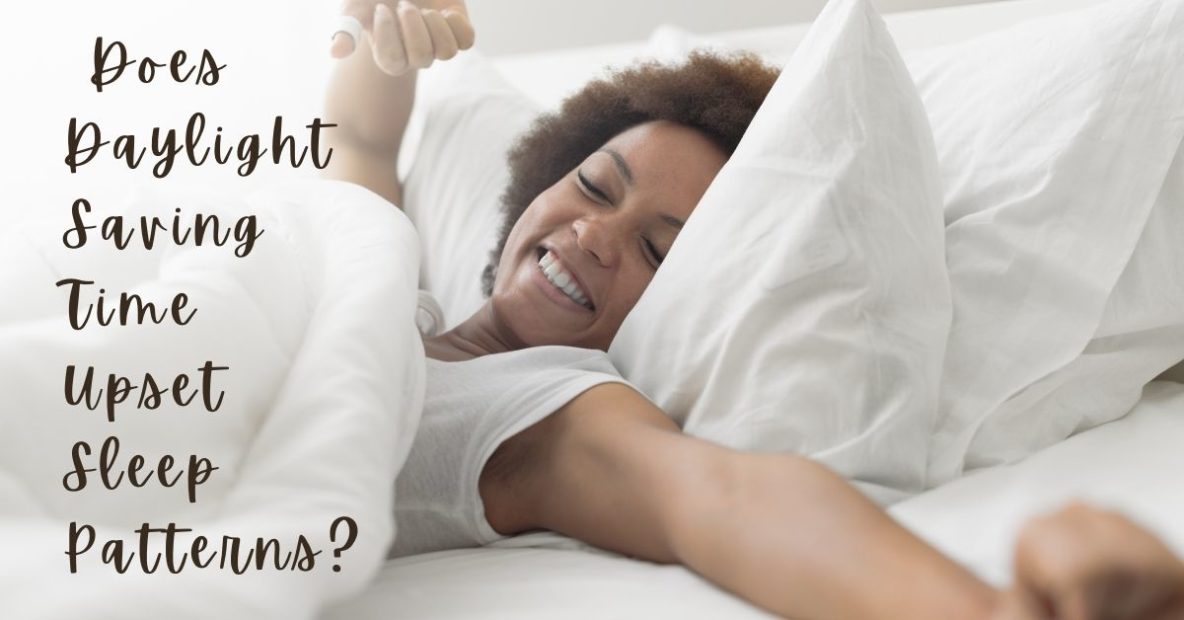Does Daylight Saving Time Upset Sleep Patterns?

- A Promising Paradigm Shift: New Research Challenges the CPAP-First Approach to OSA Treatment - September 5, 2023
- Understanding Sleep Meditation Techniques - July 30, 2021
- How Online Learning Has Affected Sleep for Students - July 13, 2021
Daylight Savings Time (DST) ended at the beginning of November, and we all turned back our clocks by one hour. Changing the clocks by an hour might not seem like a big deal, but it can upset sleep patterns and disrupt your normal sleeping habits. In both the spring and fall, people lose sleep because of daylight savings time.
The Circadian Rhythm
We’re used to scheduling our lives and our sleep with the clock, but we have an older system in our bodies. Our circadian rhythm controls our sleep and wake cycle, our appetite, and even our mood. The circadian rhythm regulates our sleep based on light. This can be from the sun or even from artificial lights in our homes. To have the best sleep, our circadian rhythms should be synced up to natural daylight and darkness.
When we turn the clocks ahead an hour in the spring, or set them back an hour in the fall, we’re upsetting this natural cycle. Changing the clocks can make you feel groggy in the morning, or feel more awake at night. Most people experience poor sleep for a few days while they adjust to the new time.
Daylight Savings Time and Sleep
It’s easy to change the clocks, but it’s hard to change your circadian rhythm. You can’t just tell yourself to be tired at a different time. A recent study found that on the Monday after the switch to daylight savings time, people sleep 40 minutes less than normal. On that Monday, there are more workplace accidents and injuries than normal, since most people are feeling sleep deprived.
Losing sleep can affect your mood, your concentration, and even your memory. While most of us get used to the new time in a few days, chronic sleep deprivation can weaken your immune system, cause high blood pressure, and increase your risk of heart disease and diabetes.
Sleep Tips to Help You During Time Changes
When we change the time in the spring and the fall, our circadian rhythms have to deal with a big change all in one night. There are a few things you can do leading up to daylight savings time to prepare your body for the change.
Slowly change your bedtime: One way to ease the transition to the new time is to slowly change your bedtime for three or four days before the time change. For example, before the spring change you can start going to bed 15 minutes earlier every night, and getting up a little earlier. By the time you have to switch the clocks, your body will already be used to the new schedule.
Avoid long naps: It’s tempting to have a nap in the days after time change since you can feel the effects of sleep loss. Limit your nap to under 20 minutes, or skip the nap all together. If you take a long nap in the afternoon it will be harder to adjust your circadian rhythm to the new time.
Spend time in sunlight: A great way to ease the transition of time changes is to get as much sunlight as possible. Natural light regulates our circadian rhythms, so spending time outside can help you adjust to the new time more quickly. Not only that, but spending time in the sun can make you feel more alert and awake during the day.
Develop Good Sleep Habits
Having good sleep habits is important all year round, but it’s especially important when you’re switching to daylight savings time.
- Avoid drinking coffee or any caffeinated drink in the afternoon or evening since this can keep you awake at night
- Don’t drink alcohol in the evening, especially around time changes. Alcohol can make it easier to fall asleep, but it affects the overall quality of sleep, and you won’t feel well rested in the morning.
- Stay away from screens in the evening. The blue light from the screen can inhibit sleep, so you should put down your phone at least one hour before getting into bed.
Still Not Sleeping?
If you have been struggling with sleep issues, visit us at Sound Sleep Medical. Together we’ll get to the bottom of your sleeplessness, and make sure you’re getting the sleep you need each and every night.
